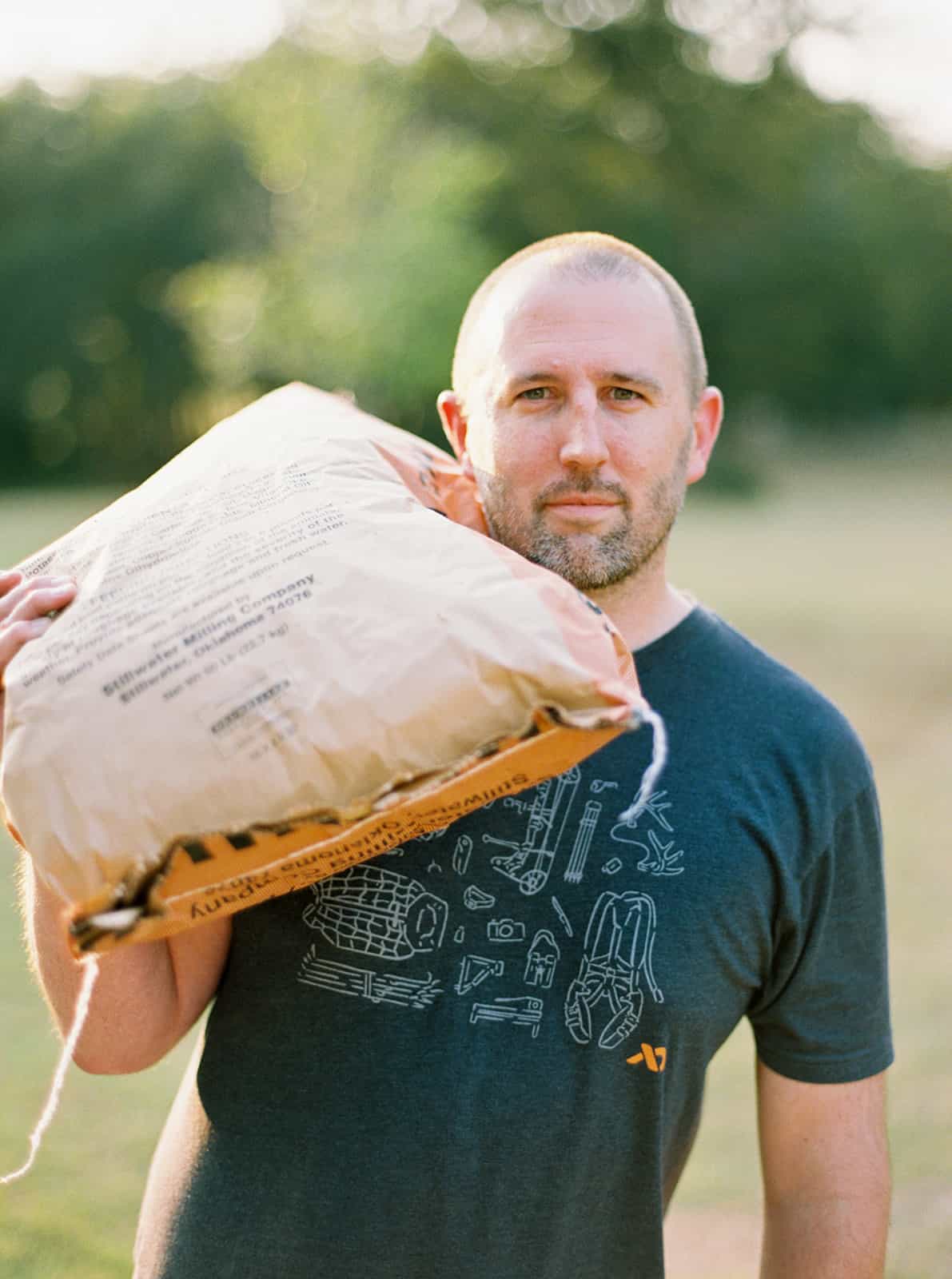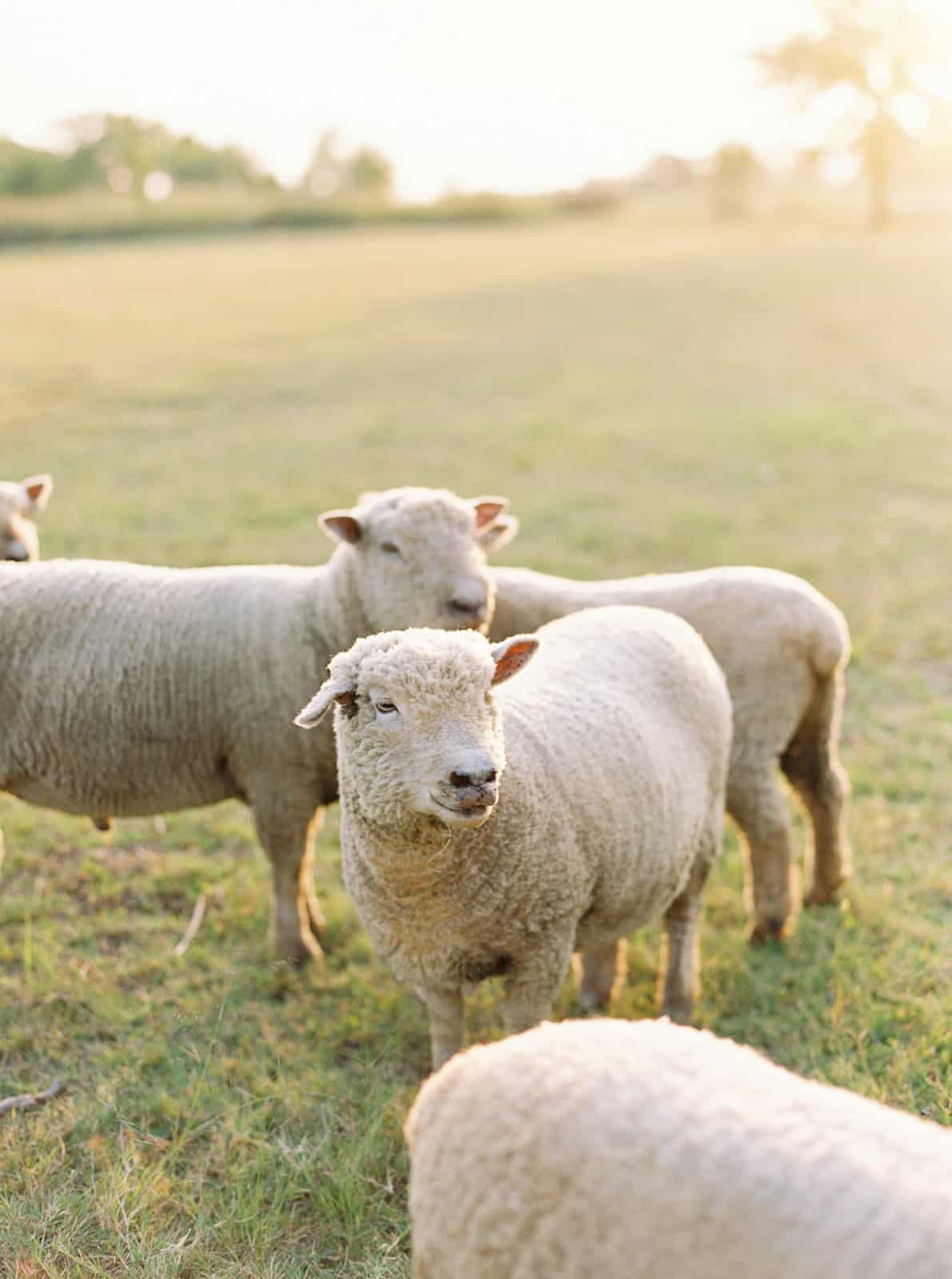The Complete Guide for Beginners: Decide What You Want to Grow and Raise, Find Land to Build Your Dream Home, File a Homestead Exemption and More!
Starting a homestead is exciting and daunting—especially for those who were not raised in the country, like us. There is a simple process to follow if you want to live in the country to raise farm animals and grow gardens or crops.

When Nate and I decided we wanted to live on land, we knew nothing about Babydoll Sheep and we barely knew how to garden. But before all of that, we had to figure out how to begin—logistically and legally.
We had to find acreage to build a home, figure out how to build a home on land, file a homestead exemption and decide if we wanted to turn the hobby farm into a business.
And, we needed to find a way to homestead on a budget.
When you’ve decided you want to move to the country, there are all kinds of ways to pursue the provincial lifestyle. There is no one right way to set up your home and raise animals.
However, there are a few important universal things to note before diving in that this article covers.
In this article you will learn how to:
- Define a Homestead
- Decide What to Grow and Raise on Your Homestead
- Find the Perfect Land for Your Homestead
- File a Homestead Exemption
- Build Your Dream Home on Land
- Turn Your Homestead into a Business
- Homestead on a Budget
Disclaimer: This article is for general information purposes only. You should not rely on the materials of a website to make business, legal or any other decisions. This information is based on my personal experience.
Homestead Definition
What classifies as a Homestead
A homestead is a home and surrounding land owned by a family. The land is used for growing crops or raising livestock, but the bare minimum requirement to be considered a homestead is a home with surrounding land owned by one family.
To homestead generally means that your goal is to live off of your own land.
What to Grow and Raise on Your Homestead
Best Animals for New Homesteaders
Whether you want to raise animals for self-sufficiency or to create a homestead business or just a hobby, here are the most common homestead animals:
Chickens: You can raise chickens almost anywhere, per your local permits. Chickens are perfect for meat or eggs.
Meat Rabbits: You can raise meat rabbits in very small locations, perfect for new homesteaders.
Honeybees: Honey is not only delicious, but often easy to sell. Raising honeybees could be a great fit for a homestead business.
Goats: Goat milk can be used to drink, make soaps and lotions to use and / or to sell.
Sheep: We are partial to sheep, Babydoll Sheep, for their wool and friendliness. However, you can raise sheep for meat, wool and dairy. Personally, we think sheep are more economical choice over goats.
Pigs: Pigs are messy, but it is very easy to raise a slaughter pig for meat.
Cows: Cows, while the need space, are surprisingly easy farm animal to raise and can provide a year’s worth of meat to your family and make you money at the auction.

Growing Food for Your Family
To determine how much and what you need to grow to feed your family, you need to be specific and realistic about what that means. Here are five questions to answer to help you understand how much to grow on your homestead for sufficiency:
- What does my family like to eat?
- How much do we eat of each vegetable?
- Will we eat canned vegetables?
- How much space do we have to garden?
- What grows well where we live?
These questions are the just the beginning. They should be followed by looking at your hardiness zone, soil type, environmental conditions, sunlight, etc.
Books on Homesteading:
- Backyard Homestead: This is a great starting guide for beginners.
- The Modern Homestead Garden: This is a newer book, great advice for those who want to ‘homestead’ but stay close to the city.
- Homegrown & Handmade: Anything by Joel Salatin is excellent. This focuses more on self-sufficiency.
How to Find the Perfect Land for Your Homestead
Homestead Location
Your optimal homestead location will be based on your homestead and lifestyle goals. How far do you want to be from town? Where do you want to live geographically? Do you want to live near family and friends or start someplace new? Where will you find good community? (Because having a good homestead community is important, often vital for success.)
Homestead Size
How much acreage will you need? Knowing the range of acres will help narrow down options.
Helpful Tip: It is usually better to buy a larger piece of land with a friend or family member that you can then divide amongst yourselves. This allows you to find, typically, more beautiful and healthy land than a typical, singular smaller plot.
This is what we did, purchasing property with Nate’s parents. I’ve had several friends do this and find better, faster success at finding their dream property.
Unconventional Ways to Find Land
Many times, a piece of property may be for sale, but you wouldn’t find it on a typical website.
For example, we would drive around and when we would see property we liked, we would find out who the owner was and call them up to see if they were selling their land or maybe a piece of it.
You’d be surprised how many properties were for sale or perhaps could be persuaded to sell, but were not listed online.
Zoning Laws and Permits
Finally, before purchasing a property, make sure the zoning laws allow you to pursue your homestead goals. A simple Google search or calling your local governing office will help you determine if legally the land is perfect for your needs or not.
Filing a Homestead Tax Exemption
If you want to pursue a tax exemption, you will want to make sure your property and goals qualify.
All you need to do is Google what you need to qualify for your state per your potential property’s location.
Calling the local city your property is in wouldn’t hurt either. I always prefer talking to a real person over only Googling information because even on government websites, information can be outdated.
Click here for the tax exemption application form for Oklahoma.

Building Your Dream Home on Land
After you’ve checked your local zoning laws and potential permits you might need, here are a few things to keep in mind when building your dream home at your homestead:
Layout and Design
You will want to be mindful of where your gardens and animals go. However, you also need to consider your access to them from your home. When it is below freezing in winter, you will be glad to have had your animals nearer to you than away.
Also, similar to making sure the zoning laws fit your goals, you will want to check on any building restrictions, beyond permits. For example, we have a creek on our property which is considered a navigable waterway and cannot build so many feet close to it.
Utilities
Will you have access to city water or well water? What sort of septic system will you use? Something people often don’t think of until it’s too late: What is the Internet service like?
Budget
When budgeting for your home, not only should you allocate funds for potentially going over budget—almost everyone does it. But, you also need to keep in mind your budget needs for other structures like sheds, barns, roads (paved or graveled) and fencing.
Pro Tip: Have a fencing budget or at least be aware of the costs. It is vital to your property and is much more expensive than many people assume. Get all the quotes on everything you can.
Turning Your Homestead into a Business
Not everyone pursues homesteading to make money off of their property. Some simply want a hobby farm for the lifestyle, maybe perhaps as part of retirement.
However, If you want to turn your homestead into a business, there are a few things to consider and do:
- Create a Business Plan: The simple act of writing out how you will make money in a formal way will guide you through the process much more effectively.
- Meet with a Legal Advisor: You can file an LLC on your own, however, it is always best to be extra cautious. Especially if you are going to be selling food, there may be restrictions in your area you need to know about before making your business official. They can also guide you towards the legal documents you need to operate.
- Get Your EIN: Once your business is filed, simply go to irs.gov to apply for your EIN.
- Set Up a Business Bank Account and Meet with an Accountant: Open up a business bank account with your EIN, separate from your personal. Then, meet with a small business accountant, preferably one familiar with homesteads, farms and ranches.
Homesteading on a Budget
When people ask me if it’s expensive to live outside of town and raise animals, my answer is always yes and no.
Yes, the way I want to homestead is expensive. I have Monty Don garden dreams and grew up obsessing over Martha Stewart’s Turkey Hill farm. So sometimes, our choices are expensive.
But no, it doesn’t have to be expensive to homestead. You can start small, you can borrow, you can work with what you have.
The homestead life can be achieved on any budget. Decide what is best for you and your family, then stick to it.
Affiliate Disclosure & Content Disclaimer
This post may contain affiliate links from a sponsor, Amazon Affiliates or other program. If you use these links to buy something we may earn a commission at no extra cost to you. This allows me to continue creating more content that you love. The content of this article is for general information purposes only. My goal is to provide you with the best information possible from my personal experiences for you to make the best decisions on the given topics for yourself.
Photographs by Leah Payne